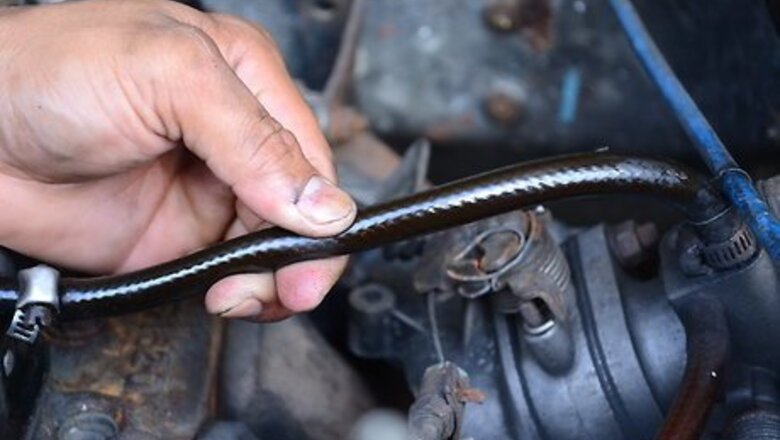
views
Visual and Hands-On Inspection
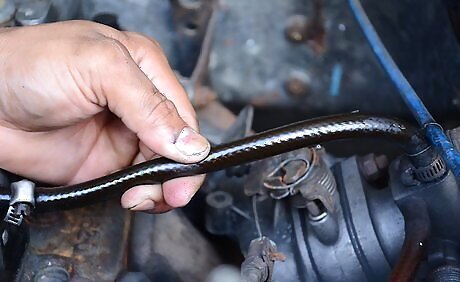
Check each hose for bulges and swelling. If a hose feels soft or spongy when you touch it, this can indicate damage caused by your car's oil. A swollen hose that is cracked and hard is often caused by heat damage. These hoses can be too close to heat sources under the hood or it may be the result of overheating. Bulging hoses can also be caused by electrochemical degradation when there's a coolant leak dripping onto hoses. Sometimes you can feel tiny cracks or weak spots when you squeeze a cool hose near one of the ends.
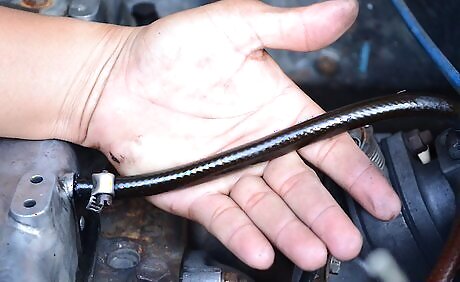
Examine the hoses for tiny cracks and scratches. Small parallel cracks in the cover of a hose can be ozone damage. Scratches and other irregular injuries to the hoses can be caused by hoses rubbing against a moving part of the engine.
Using a Vacuum Detector
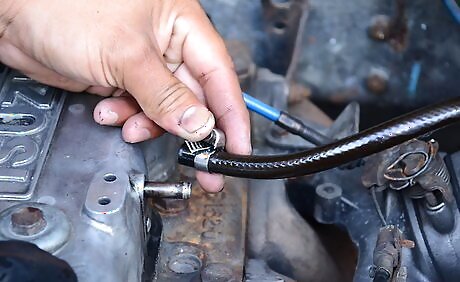
Detach the vacuum hose from a system or accessory of your car, such as the hose from your heater or cruise control.
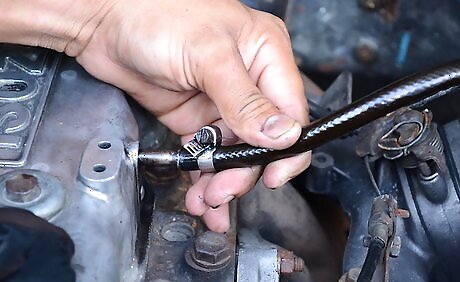
Attach your vacuum gauge and start your vehicle's engine. Allow your car to idle for a couple of minutes. Your gauge should read between 14 and 18 inches of vacuum. If the reading is low or non-existent, there's a blockage or leak in the vacuum line. Visually check the entire length of the hose for the problem.




















Comments
0 comment